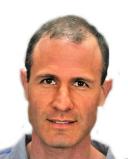Memory
Why Famous People Aren’t Immune to False Memories
The more you tell a story from the past, the more you may misremember.
Posted February 9, 2015
How we remember the past is personal, and sometimes inaccurate. Just ask Brian Williams, who recently came under intense scrutiny about his recollection of events when travelling aboard a military helicopter in Iraq that was hit by RPG fire in 2006.
However, there are many important reasons why Brian Williams would in fact feel like he indeed remembers riding in a helicopter that was hit and damaged even if he was nowhere near it. Elizabeth Loftus, a psychologist who is a pioneer in the scientific study of false memory, has conducted hundreds of experiments on more than 30,000 people over the past 40 years. She has found that a person's memory is highly susceptible to suggestions or insinuations from conversations with other people or from watching, reading, or listening to news stories.
Many people may think that memory is like a recording device or a video camera. But Loftus says everyone also embellishes memories or adds to them when they recall or recount them, and over time those changes become part of the memory itself, whether accurate or not. As Loftus points out, "Frankly, we are all vulnerable to having our memories tampered with. Your memory is not a recording device. It's more like a Wikipedia page. You can change it, but other people can, too."
Clearly, Brian Williams is not alone when it comes to infamous false memories. In 2008, Senator Hillary Clinton recalled her experience in which she vividly remembered landing in Bosnia in 1996, under intense sniper fire, yet actual video of news footage showed that her group did not arrive under attack and in fact were walking calmly from the plane and in no apparent rush. Clinton’s critics accused her of deception, but she claimed she simply and honestly misremembered her experience and apologized.
George W. Bush also displayed some famous memory distortions, when, on several occasions, he told audiences that on 9/11, he had watched the first plane fly into the north tower of the World Trade Center on TV, just before entering that classroom in Florida to read a book to school kids.
All of these cases involved highly emotional moments that happened to people who are in the spotlight and doing very stressful things—and all the more reason one might think they would be hard to forget, perhaps. But just the opposite might be true under the right conditions. For Brian Williams, his trailing helicopter made an emergency landing in the desert behind the aircraft that was in fact hit (so, in fact, he saw damage to another helicopter, just not his own). Prior to landing in Bosnia, Hillary Clinton was instructed that she might have to wear a flak jacket to protect her from antiaircraft fire, and she was told her airplane might not be able to land at the airport in Bosnia because of some sniper fire in the area (thus, she was thinking about this issue prior to landing and may have had a vivid picture in her mind). Bush was told by an aide about the first crash into the World Trade Center Tower just before entering the classroom (again, he envisioned in his mind what had happened but hadn’t actually witnessed it).
For Brian Williams, he wasn't the only one involved in the incident who eventually had to recant claims and blamed his faulty memory. Richard Krell, a pilot who initially verified portions of Williams' story, recanted his version as well, and said, “The information I gave you was true based on my memories, but at this point I am questioning my memories." According to Krell, he was flying the helicopter that Williams was on in Iraq and the three helicopters in the formation, which included the one Williams was on, came under attack with some "small-arms fire," and this resulted in some damage. Krell had a strong memory, but apparently not an accurate one. The challenge is to know when to question our memories, as memory can often be quite reliable, and sometimes it is difficult to forget.
Memory can be highly reconstructive and is susceptible to many “sins,” as Harvard Professor Daniel Schacter describes in his book, The Seven Sins of Memory: How the Mind Forgets and Remembers. Schacter discusses how this has been demonstrated in another important context: After the Oklahoma City bombing, the infamous "John Doe No. 1" and "John Doe No. 2" sketches were drawn based on the descriptions given by a man who worked in a body shop. John Doe No. 1 was in fact Timothy McVeigh, but John Doe No. 2 was a completely innocent man. “His memory of McVeigh was accurate, and it was eventually figured out that his description of John Doe No. 2 was an accurate description of a completely innocent military private who had been in the body shop the day after McVeigh, with a guy who looked just like McVeigh," Schacter said. "He put the two memories together to form one.” This type of memory error is not uncommon and is known as context blending or a conjunction error, where we accurately remember certain aspects or features of the past but link or associate them together incorrectly when we try to recall them. And then the more we recall them together, the stronger this reconstructed memory becomes, as does our confidence in this memory. This has also been demostrated by people who vastly misremember how, when, and where, they first heard the verdict of the O.J. Simpson trial, as shown in a study pubished in Psychological Science. As time goes on, and more stories are told, people will confidently remember, and misremember, many important aspects of the past.
As we age, we tend to misremember or reconstruct more about the past. All of the famous people described were over the age of 50 when recalling the information in question. As we age, we encounter more information and tell more stories of the past (some accurate and some slightly embellish for various reasons). These memories become our personal narrative, but that doesn’t mean we should not question why and how we remember some things, but consistently forget others (like, where are my keys).


